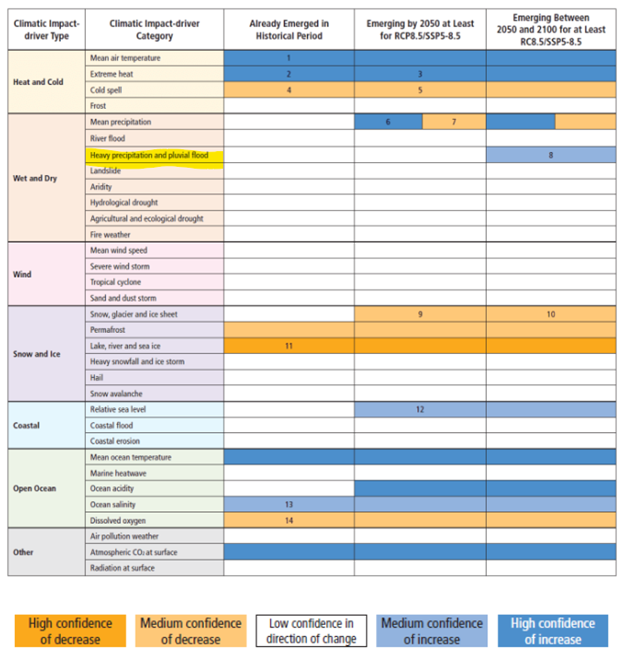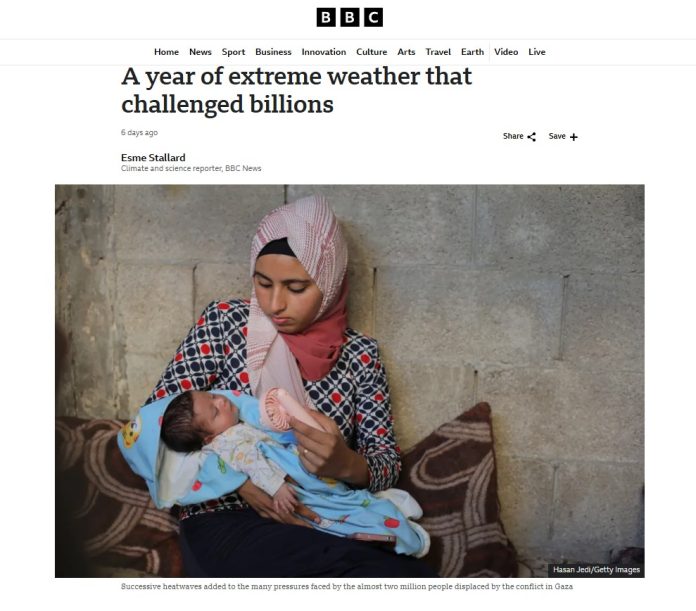The BBC’s recent article, A Year of Extreme Weather That Challenged Billions, presents a false narrative, attributing various weather events in 2024 directly to climate change. While it’s undeniable that our planet experiences a range of weather phenomena on a yearly basis, conflating individual weather events with long-term climate trends oversimplifies complex weather and climate systems, misleading the public.
It’s essential to differentiate, as the World Meteorological Organization does, between weather and climate – something the BBC missed completely. Weather refers to short-term atmospheric conditions, while climate denotes the average of these conditions over extended periods, typically 30 years or more. Attributing singular weather events to climate change without robust, long-term data showing a trend in such events to prove it lacks scientific rigor, making it a baseless claim.
The BBC article emphasizes the prevalence of heatwaves in 2024, suggesting a direct correlation with climate change. However, the U.N. Intergovernmental Panel on Climate Change (IPCC) notes that it only has medium confidence in the attribution of increased frequency of heatwaves to human influence, other factors, including urbanization and land-use changes, also contribute. It is an oversimplification to attribute heat-related events solely to climate change without considering these variables. See the table below and note the white spaces denote a lack of attribution to climate change.

The article points to instances of droughts and floods as evidence of climate change. The IPCC report indicates that while there are regional variations, it has low confidence in attributing increased flooding events to anthropogenic climate change on a global scale. Similarly, drought occurrences are influenced by multiple factors, including natural variability, making it challenging to attribute them directly to climate change. Overall the IPCC says it currently sees no evidence flooding has increased due to climate change, and suggests it expects no attributable changes to flooding or droughts until after 2050 if ever.
The BBC piece mentions hurricanes and cyclones in 2024, implying a link to climate change. However, the IPCC reports low confidence in any long-term increases in tropical cyclone activity globally. Data shows no clear trend in the long-term hurricane/cyclone data. The number and intensity of tropical cyclones have not increased since 1972, as the planet has modestly warmed, and some data suggests tropical cyclone frequency has actually declined over the past century. Nor have tornadoes become more frequent or powerful.
Media outlets have a responsibility to present information accurately and without bias.
The BBC’s article conflates individual weather events in 2024 with long-term climate trends, a practice that oversimplifies complex scientific phenomena and is not supported by the data. By failing to distinguish between weather and climate and overlooking the nuances presented in authoritative sources like the IPCC reports, the article is nothing more than sensationalist pap, not accurate reporting, violating the journalistic standards of accuracy and impartiality that the BBC purports to uphold. In short, the BBC’s reporting does not inform the public but rather misleads it about climate change.
For a more balanced perspective on climate-related topics, readers might consider consulting resources such as Climate Realism, Climate at a Glance, and WattsUpWithThat which offer analyses grounded in data, facts, and scientific integrity.

















